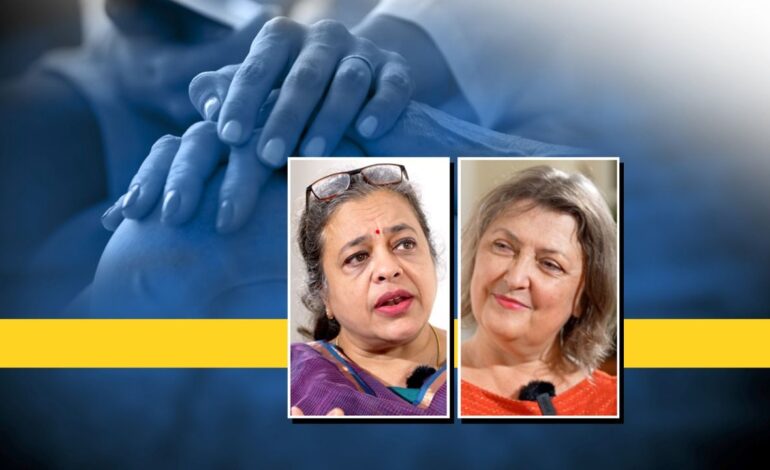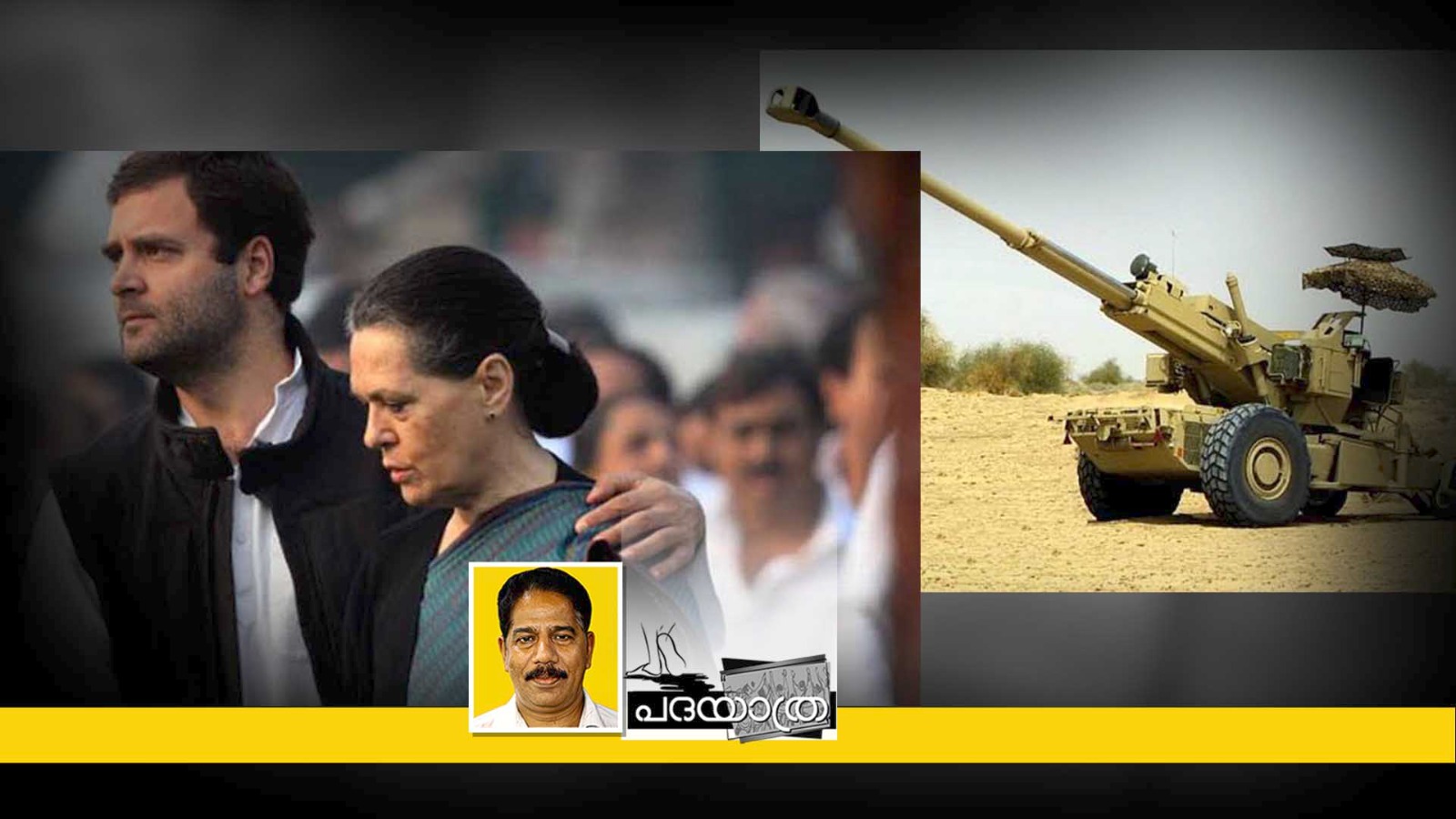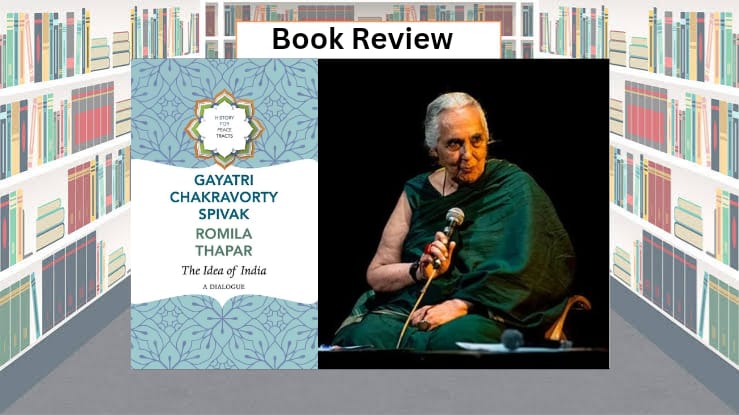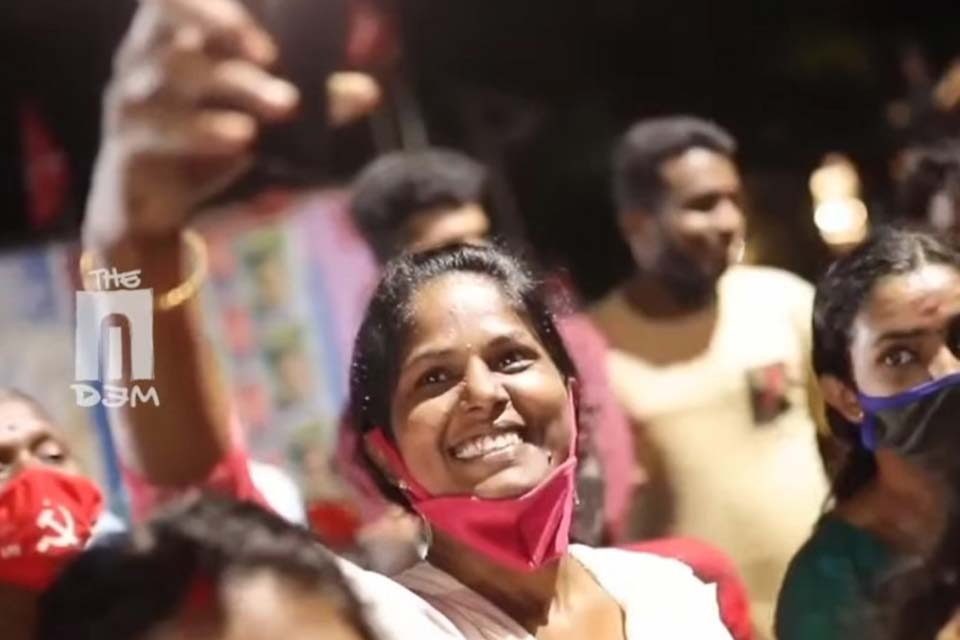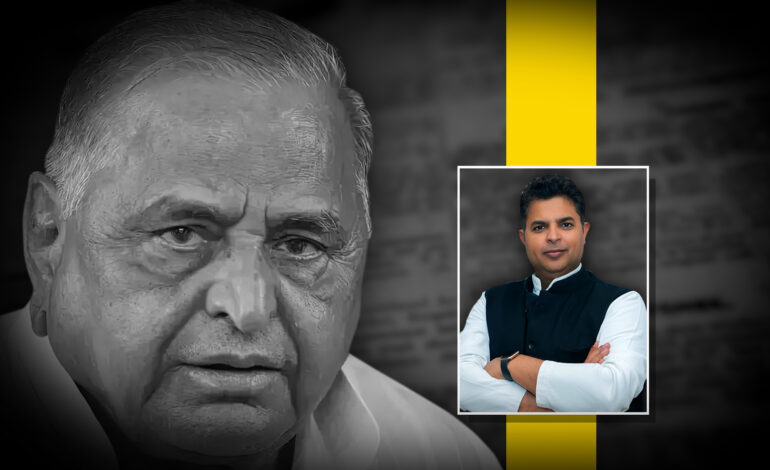
Mulayam Singh Yadav, fondly called Netaji (leader), was a true people’s man, a secularist, a socialist, a wrestler, a teacher, a politician and a leader par excellence. He founded the Samajwadi Party in 1992 and served as the Chief Minister of Uttar Pradesh thrice and once as the Union Defence Minister. He was elected ten times as a Member of the Legislative Assembly and seven times as a Member of Parliament, and is the only leader to have held the position of the Leader of Opposition in both Houses of the legislature in Uttar Pradesh. He transcended his status as a regional party leader to emerge as a crucial player in national politics. He passed away on October 10 at the age of 82. His loss is mourned by millions in every part of India and the world.
Born on November 22, 1939 in Saifai to Sughar Singh and Murti Devi, Mulayam became a wrestler and later started his career as a teacher at Jain Inter College in Karhal, Mainpuri. He would often motivate workers with his advice that it is possible to achieve anything if you set your heart and mind to it. Citing himself as an example, he would say he was born in a poor ‘kisan’ family with a few heads of cattle and a ‘kuchha’ home in a village that had no water, power, school or ‘pucca’ road. Impressed with his wrestling skills, especially his charkha daanv (sudden turn and attack) and his ability to defeat stronger competitors Nathu Singh, Samyukt Socialist Party MLA from Jaswant Nagar in Etawah, took Mulayam under his wing and thus became his first political guru. He organised Netaji’s meeting with the socialist leader Dr. Ram Manohar Lohia. Lohia was impressed by Netaji’s efforts in organising bandhs called by Lohia in 1966, and then organising his meeting in Etawah. In 1967, Nathu Singh stepped aside and had Netaji contest the Assembly election from Jaswant Nagar. Mulayam campaigned door to door and called upon the marginalised to unite. He garnered a record 1.03 lakh votes and became an MLA. He was just 27 then.
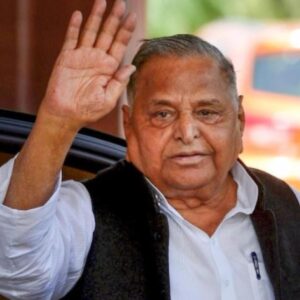
During the Emergency, Netaji was in prison for 19 months. In 1977, when the first non-Congress government was formed in Uttar Pradesh, he became a Minister. While in government, he reserved seats for the Scheduled Castes in cooperative institutions. This proved to be a political master-stroke – he emerged as a messiah of the depressed sections of society. A socialist always, Netaji was alive to political possibilities such as mergers and splits and was affiliated with many parties _ the Samyukta Socialist Party of Ram Manohar Lohia, the Bharatiya Kranti Dal of Charan Singh, and the Bharatiya Lok Dal, and the Samajwadi Janata Party_ before founding the Samajwadi Party in 1992.
Mulayam was widely respected and was known to have friends across political parties. He was famous for keeping his word, developing and nurturing relationships, taking care of his people, simplicity and humility. He would always see off people personally accomopanying them up to their cars even when he was Chief Minister, and was believed to recognise lakhs of workers by their first name and location. He got more respect than one normally reserved for politicians because of his personality that transcended petty party politics.
The idea of socialism
Mulayam’s biggest political contribution was to add socialism or ‘Samajwad’ to the political lexicon and ensure the idea’s place in the societal landscape of India. Samajwad always existed as an ideology, with its roots traceable to Hindu political and administrative thought and organisation in India. Mahatma Gandhi was the first and foremost proponent of socialism in modern India. This mantle was carried forward by prominent leaders such as Ram Manohar Lohia, Jayaprakash Narayan, Madhu Limaye, and Vinoba Bhave. However, it lacked force and focused practical implementation. It was under Netaji that ‘Samajwad’ as an ideology became a real political force and rallying slogan, especially in U.P.
Ideologies are conceptual maps that help in interpreting contexts, and not just economic models. The importance he attached to this ideology was clear from the way Netaji campaigned for the politics of assertion of the backward sections of society, and articulated popular ideas and the concerns of the people. He would regularly raise issues related to popular frustrations over the lack of jobs, economic empowerment, equality, and national security especially vis-a-vis China, and stand up to the exploitative socio-political forces in the country. He had a deep personal commitment to this mantra of socialism. He not only built a coalition of India’s political elite around these issues but spent considerable time giving shape to a message that resonated with the masses by placing it in the context of the history of ideas.
Netaji’s foremost priority was the fight for equality of access and opportunity and the struggle for assertion of subordinate and oppressed people. He became the embodiment of this struggle and leaders across the political spectrum found him genuine, humane and inspirational. His persona was above the usual vindictiveness in politics.
Mulayam was different things to different people – he was ‘Dhartiputra’ for the backwards and downtrodden. He mainstreamed the politics of the Other Backward Classes and created a new political consciousness amongst this group, thus contributing to altering the political landscape of India. This gave him a ‘Mandal’ identity. In school, to save a Dalit boy, he physically confronted a group of tormentors all alone. He became ‘Dada Bhaiya’ for school boys. Senior bureaucracy had its own twist. When communal politics raised its ugly head he was referred to as ‘Mullah Mulayam’ by a few. To his followers he was ‘Netaji’. In essence, he was an enigma encapsulating all these identities or manifestations in his stride, and more.
Transcending regionalism
His contribution to political thought, intellectual capital and political practice in India is unique in that sense, and sets him apart from contemporary leaders. His thought and politics were not limited to a region, unlike the leaders of most other regional parties, but was pan-Indian and universal in approach and application. Though a regional party leader, his impact was truly national and he defined and shaped national politics for almost five decades.
Congress’ decline and Mulayam’s rise
There was hardly a political manoeuvre he did not know and use to outwit his political rivals. Netaji rose in U.P. politics during the politically transitory decade of late 1970s, late 1980s and early 1990s, which was marked by intense caste divide and communalism. He established himself as a true blue socialist who strongly and openly advocated the politics of assertion. He argued for and worked tirelessly to ensure reservation for the backward castes, instituted welfare schemes and grants, and maintained strictly secular credentials in sync with the ethos of the Indian Constitution.
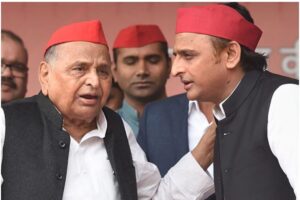
His rise in U.P. politics coincided with the decline of the Congress, which, under the leadership of N.D. Tiwari, was voted out of power in 1989 and has not seen a realistic revival since then. The year 1989 was a watershed for Netaji. The Congress was reduced to irrelevance in U.P, which altered the national political landscape over time. The Samajwadi Party became mainstream, whether it was in power or in the opposition. Netaji became Chief Minister of U.P, the political hotbed of India, for three times and dominated its politics ever since he emerged on the political horizon of the State. His political journey, undertaken in the spirit of strengthening the political agenda and message of samajwad was full of twists and turns. In the course of his political caree, he opposed or supported the Central government on the basis of issues. The most prominent instance of his support was when he saved the Manmohan Singh-led Congress government over the issue of the nuclear deal with the United States of America. He was convinced that the deal was in the best interest of India and, despite his political and personal differences with the Congress, he supported its government when Left withdrew support. This was an instance where his nationalism trumped political prudence, all with his inimitable simplicity, charisma and endearing smile. He had an uncanny sense for the simple and the right thing.
Even when out of power, Netaji remained at the centre of politicking. He dominated the government and opposition space completely for over three decades in U.P. After the Samajwadi Party’s historic win in the Assembly elections in 2012, Netaji passed on the responsibility of leading the government to his son Akhilesh, whom he had been grooming as an MP, while keeping a tight vigil on the party and government.
Father and son
An interesting episode illustrating Netaji’s fruitful intervention comes to mind here. When Akhilesh Yadav as Chief Minister laid the foundation stone of the longest expressway in U.P. between Lucknow and Agra, Netaji was the chief guest of the ceremony. He asked the Chief Minister to go on record publicly and declare the proposed date of completion of this ambitious project. When informed that the timeline for completion was three years, Netaji wanted it to be completed in two years or 24 months and asked Akhilesh to make a public promise to stick to the deadline. Akhilesh agreed. It was completed and dedicated to the public in 22 months, a record in building an expressway to ever have been built anywhere in India. An ecstatic Netaji was the chief guest at the time of the expressway’s inauguration as well.
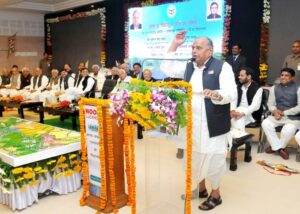
Netaji’s death marks the end of an era. Sometimes, the way leaders are mourned unites societies and organisations. Death, and collective mourning provides a setting to encourage reconciliation, unity, and position the next generation as the torch-bearers as they inherit the mantle of the departed leader. Netaji’s death will cement his legacy, encourage a sense of pride and identity, and nurture cohesiveness and involvement in the Samajwadi Party and amongst its followers. He strengthened the Samajwadi movement by nurturing and mentoring a close group of leaders, who not only served the socialist movement, but will carry forward his principles. People’s emotional outpourings from across the country over the demise of Netaji gives us the hope that socialist and secular values will live, and thrive. Long after his death Netaji will continue to influence the project of building India as he had done in varying roles – as a leader of the government, the opposition and the civil society. India’s hope lies the future to be built thus!


